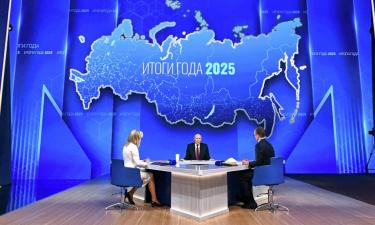Russia Slams Iran’s Ahmadinejad For Being Overemotional
Russia strongly denounced the remarks from Iranian President Mahmoud Ahmadinejad who stated that Russia was going on a leash of Western states. Ahmadinejad harshly criticized his Russian counterpart Dmitry Medvedev on Saturday, July 24. The Iranian leader disliked the statements, which Medvedev released on July 12.

"They (Western states) have decided to launch attacks against a couple of Arab countries in the region that are our friends in order to create an atmosphere of fear in Iran, make Tehran obey its enemies," IRNA quoted Ahmadinejad as saying.
"Recent remarks by the Russian President Dmitry Medvedev are in fact revealing that scenario and we regret the fact that Medvedev has become the spokesman of this project and the plot hatched by Iran's enemies," he then added.
One is only left to guess what Ahmadinejad did not like about Medvedev’s words. Medvedev said that Iran was getting closer to possessing a nuclear potential, which would obviously raise concerns with the international community.
Medvedev criticized Iran for such behavior and added that the sanctions against the state would not lead to desired results. Medvedev only repeated the things that he said before meaning that the West should neither put excessive pressure on Iran nor abuse the use of sanctions against the nation.
Therefore, it was strange of Ahmadinejad to label Medvedev as Iran’s enemy. Russia has been standing against the introduction of tough sanctions against the Islamic Republic. Moreover, the Russian administration never welcomed USA’s and EU’s statements regarding Teheran’s policies.
On July 26, Russia’s Foreign Affairs Ministry released an official statement attacking Ahmadinejad over his criticism of the Russian president.
"The recent public statements by Iranian President Ahmadinejad, which distort Russia's objective approach and our independent, constructive policy towards the Iranian nuclear program..., are absolutely unacceptable to us," the ministry said.
"We believe that instead of fruitless and irresponsible rhetoric, the Iranian leadership should take specific, constructive steps towards settling the situation as soon as possible, which Russia and the Iran Six (Russia, the USA, China, Britain, France and Germany) have been insistently calling for," it said.
Let’s take a look back and see how the situation around the Iranian nuclear program was developing in 2009.
In October 2009, the Vienna group – Russia, France, the USA and the IAEA – offered Iran to enrich its uranium on the territory of the Russian Federation. It was quite a logic decision to make: the relations between Iran and Russia were much better than those with any Western country, which could also assist in the enrichment of the nuclear fuel.
Iran rejected the offer claiming that the uranium enrichment process should take place only on the territory of the Islamic Republic. Moreover, on February 11 Ahmadinejad stated that his country had produced the first batch of the 20% enriched uranium. To add more fuel to the fire, the Iranian president added that his country was intended to build ten new uranium enrichment factories.
Such a behavior put at risk the future talks about the Iranian nuclear program. Ahmadinejad’s statements only made the doubts about the program stronger.
At the same time, Russia positively estimated the agreement signed on May 17 by foreign ministers of Iran, Turkey and Brazil. According to the agreement, Iran shall send to Turkey 1.2 tons of the low-enriched (3.5%) uranium. Afterwards, the fuel shall be delivered to Russia and France for the production of 120 kilos of 20% enriched uranium. In the end, Turkey would hand over the ready fuel to Iran and the latter would use the fuel in peaceful purposes.
However, the agreement did not stipulate Iran’s parallel refusal from the uranium enrichment activities on its own territory. This did not remove the world’s apprehension of Iran’s intention not to use the uranium for building weapons of mass destruction.
As a result, Russia supported the introduction of new sanctions against Iran on July 9. The sanctions expanded the embargo on the deliveries of certain types of arms to Iran and established tougher control over the Iranian banks.
Speaking about the sanctions, Dmitry Medvedev said they in no way were meant to make Iran kneel. The sanctions “were supposed to boost the process of negotiations,” he stated.
The Russian president was actually right: the sanctions pushed the talks forward.
Foreign ministers of Iran, Brazil and Turkey had a meeting in Istanbul on July 25. They agreed that Iran will send new suggestions to Russia, the USA, France and the IAEA. Russia supported such a decision.
“We welcome the continuation of the dialogue between Iran, Brazil and Turkey about the variants of the project to exchange the Iranian low-enriched uranium to the fuel for the research reactor in Teheran. We are ready for such a meeting and Teheran knows that,” Russia’s Foreign Ministry said in a statement yesterday.
Therefore, Russia confirmed its interest in continuing the dialogue around the Iranian nuclear program. Unlike the European Union, which announced the introduction of new sanctions against the Islamic Republic on July 26, Russia did not propose anything like that. It is obvious that Russia and the West have absolutely different approaches to the issue.
Vadim Trukhachev
Pravda.Ru
Subscribe to Pravda.Ru Telegram channel, Facebook, RSS!




